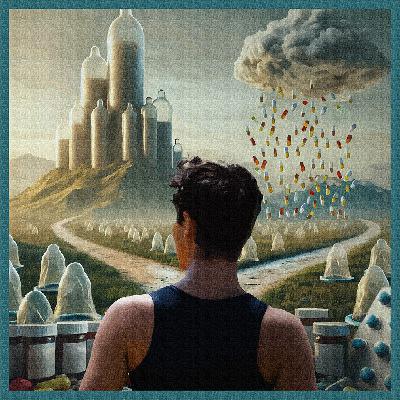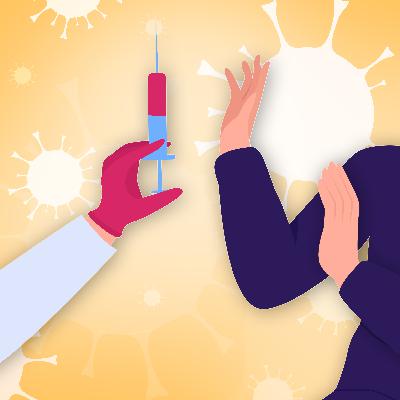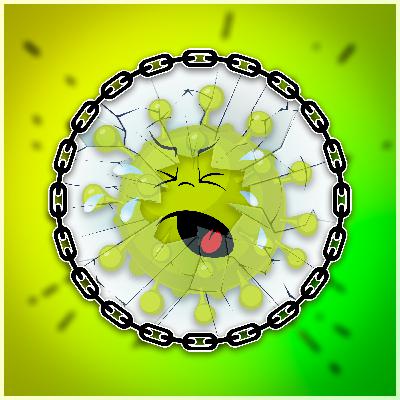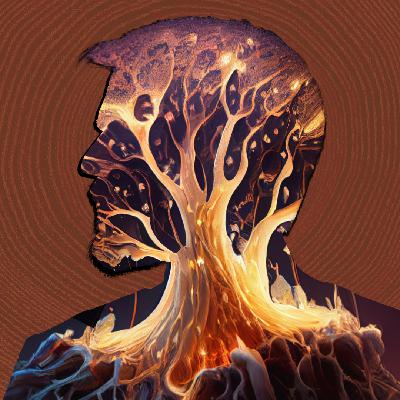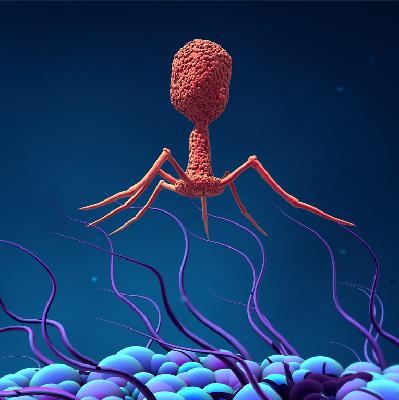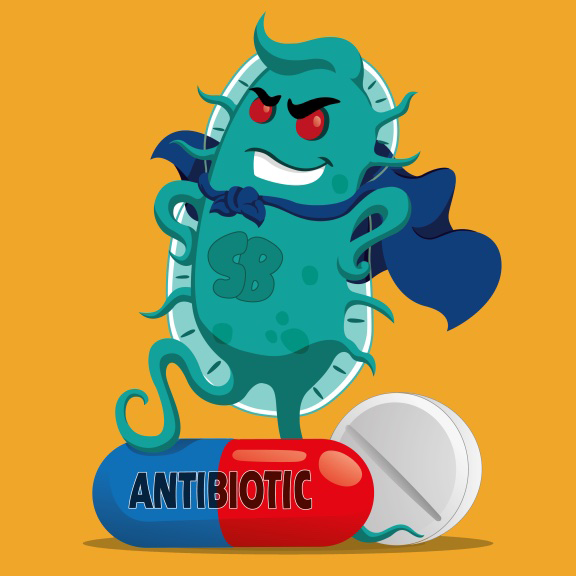Discover Microbe Matters
Microbe Matters

Microbe Matters
Author: University of Pittsburgh Infectious Diseases
Subscribed: 1Played: 3Subscribe
Share
© 2025
Description
In this podcast we discuss, dissect, and demystify topics in Infectious Diseases with our experts here at UPMC and the University of Pittsburgh. Follow the conversation with your host, Tony Morrison, media specialist here at Pitt ID. Please join us as we examine both the dangerous and beneficial microbial microcosms that surround us, promote public health, and showcase research and treatment of modern infectious diseases.
*The information contained does not reflect the views of the University of Pittsburgh School of Medicine. The content of this podcast should not be used as a reference for specific treatment recommendations regarding patients.
*The information contained does not reflect the views of the University of Pittsburgh School of Medicine. The content of this podcast should not be used as a reference for specific treatment recommendations regarding patients.
12 Episodes
Reverse
In the final episode of Microbe Matters Season 3, we sit down with Urvi Parikh, PhD, Associate Professor of Medicine at the University of Pittsburgh, to explore the evolving landscape of HIV prevention. Together, they discuss how PrEP is transforming prevention strategies, the challenges of ensuring equitable access to care both in the U.S. and globally, and the latest innovations on the horizon, including long-acting injectables and multipurpose prevention technologies.
Dr. Parikh shares her innovative research on drug resistance and the future of prevention, shedding light on how science, policy, and advocacy intersect to tackle one of the world’s most pressing health challenges. This episode is a powerful reminder of the importance of ensuring that life-saving innovations reach those who need them most.
How does HIV evolve, and what role does gut health play in its progression? In this episode of Microbe Matters, we sit down with Dr. Cristian Apetrei to unravel some of the biggest questions in HIV research. From tracing the virus’s origins through molecular clocks to studying non-human primates for breakthrough discoveries, Dr. Apetrei shares how decades of research have reshaped our understanding of HIV pathogenesis.
We’ll explore the unexpected connection between gut health and chronic inflammation in people living with HIV, the ethical dilemmas of animal research, and the development of SHIV models that are bridging the gap between laboratory studies and human treatments. Plus, find out what a Barnes & Noble cookbook section and a McDonald's diet taught researchers about immune function.
This episode of Microbe Matters commemorates the 40th anniversary of the Pitt Men’s Study, one of the longest-running HIV research initiatives in the world. Hosted in collaboration with the University of Pittsburgh, this groundbreaking study has played a critical role in understanding HIV transmission, prevention, and care since the early 1980s.
Featuring:
Dr. Charles Rinaldo, the founding investigator, who reflects on the study’s origins during the height of the HIV epidemic and its transformative contributions to science and public health.
Nathaniel Soltesz, clinic coordinator, who shares how the study remains at the forefront of participant-centered research and community engagement.
Jeffrey, a long-term study participant, who offers a deeply personal account of his experiences and what the study has meant to him over the years.
Join us as we explore the past, present, and future of the Pitt Men’s Study, highlighting its role in advancing knowledge, building community, and fostering hope in the fight against HIV.
In 1984, a young boy named Ryan White was diagnosed with HIV from a contaminated blood transfusion. His fight for dignity and access to education in the face of discrimination became a turning point in the nation’s response to the HIV epidemic. From his legacy came the Ryan White CARE Act, which continues to provide life-saving support to thousands living with HIV today.
In this episode of Microbe Matters, we explore the evolution of HIV care and the vital role of the Ryan White programs. Host Tony Morrison is joined by Dr. Nupur Gupta, a leading physician at UPMC’s PACT Clinic, and Ella Kaplan, a dedicated social worker specializing in community outreach. Together, they discuss the interdisciplinary approach to HIV treatment, the importance of building trust with patients, and the ongoing efforts—both medical and community-driven—to end the HIV epidemic in Pennsylvania.
The HIV epidemic endures within the global health sphere. As of 2022, approximately 39 million people live with HIV/AIDS worldwide; eliminating the viral threat remains challenging. Scientific and clinical efforts to eradicate HIV/AIDS have been ongoing for decades, yet we are still left without a vaccine or cure for the virus. But there is still much hope and promise in modern research. Major strides have been made in developing therapies for people living with HIV and preventing new infections within communities. The light at the end of the tunnel grows brighter as research and development ramp up.
In this week’s episode, we invited the Chief of Pitt’s Division of Infectious Diseases, John Mellors, MD, as well as Associate Professor of Medicine, Bernard “Beej” Macatangay, MD, to discuss the current state of HIV research. Please join us as we consider the unusual characteristics of HIV and why they create difficulties in vaccine development. We also discuss approaches to treatment as prevention, the roles vaccines play in therapeutic HIV treatments, and developments in reaching undetectable status. Is there hope for an end to the epidemic?
Vaccine hesitancy, defined as reluctance or refusal to have oneself or one's children vaccinated against infectious diseases, is certainly not a modern novelty. In recent years, however, the idea has inspired the emergence of socio-political groups and organizations that make up what is now referred to as the “anti-vax” movement. Once a fringe outlier in the public health sphere, the anti-vax movement has slowly, but surely crept its way into mainstream politics. Although today’s anti-vaccine sentiments are largely politically-motivated, the growing opposition to vaccines has now begun to exhibit real world consequences. But how and when did it all begin? And what could lower vaccination rates in the US mean for the future of public health?
This week, we investigate vaccine hesitancy with Drs. Karin Byers, MD, MS, Clinical Director for the Division of Infectious Diseases, and Sahil Angelo, MD, a current ID fellow at UPMC. Join us as we explore the history of vaccine opposition, consider how the COVID-19 pandemic influenced vaccine hesitancy, and examine the current state of the anti-vax movement.
Join us for a trip around the world and back in this week’s episode of Microbe Matters!
Globetrotting can be an exhilarating and fulfilling experience, but it can also present new potential health risks. We sit down with Carolyn Fernandes, MD, FIDSA, to discuss travel health services and the importance of preparedness when traveling abroad. In this episode, we identify various common pathogens, where they are in the world, and how to avoid disease when taking a trip. Dr. Fernandes also walks us through the pre-travel assessment process, as well as the numerous safety precautions one can follow to stay healthy. The threat of alien antigens may be unnerving to some, but don’t worry! Be prepared, not scared!
Microbe Matters returns with an all new season of bugs, drugs, and more! As the world starts to ease its restrictions initiated by the COVID-19 pandemic, its inhabitants are left to wonder what will come next. This season, we explore the various roles vaccines play in infection prevention, travel health, socio-political movements, and therapeutic treatments.
Tony kicks off season 2 by introducing Dr. Elise Martin, Medical Director of Infection Prevention and Hospital Epidemiology at the Veteran Affairs Pittsburgh Healthcare System, as well as Assistant Professor of Medicine at the University of Pittsburgh. In this episode, we discuss how vaccines work, who should get them, and how they play a crucial part in preventing the spread of infections in health care and related environments.
This episode, we switch gears a little bit to talk about sex! Tony sits down with Dr. Ken Ho, Associate Professor of Medicine at the University of Pittsburgh, and Dr. Linda Nabha, Assistant Professor of Medicine at Pitt as well. So far in our pilot season, we've discussed the threat that antibiotic resistance poses in and outside of hospitals, but did you know that there are some sexually transmitted infections that are beginning to develop drug-resistance as well?
This week we discuss the importance of routine sexual health screenings, preventative measures and treatments for STIs. We also list the various options for HIV pre-exposure prophylaxis (PrEP) and reasons why it might be right for you. Lastly, we attempt to demystify the stigmas surrounding STI infections and encourage inclusive public health messaging.
Fungal-infected zombies have overrun the media lately with the success of the TV series, The Last of Us, but a fungi apocalypse isn't likely on the horizon for humanity. However, there is a fungus on clinical radar that does pose a threat to public health. Recently, the CDC has raised concern over a species of drug-resistant fungi that is plaguing hospitals across the country and the globe.
Tony discusses emerging outbreaks with mycology expert, Dr. Neil Clancy, as well as Dr. Alexander Sundermann, who specializes in investigating healthcare-associated outbreaks of infectious diseases using genomic epidemiology. Join us as we talk about infectious fungi, where and how to find them, and the future of investigating and treating dangerous fungal infectious.
As antimicrobial resistance continues to grow and evolve, researchers and clinicians are looking towards a different approach to treating drug-resistant infections. Bacteriophages are viruses that attack bacteria but were widely dismissed in modern western medicine in favor of antibiotics- until now.
In this episode, Tony interviews Daria Van Tyne, PhD and Ghady Haidar, MD, who are both faculty members at the University of Pittsburgh interested in discovering breakthroughs in phage therapy to combat antimicrobial resistant infections. We discuss the history of bacteriophages, where to find them, and the future of bacteriophage engineering.
There seems to be a lot of buzz surrounding the notion of the “super bug” in today’s news. But what exactly is a super bug? The term is used to describe microorganisms that have developed resistance to antibiotics. The CDC has described antimicrobial resistance as a top 10 threat to global health.
In this episode, Tony is joined by Dr. Alex Viehman, MD, and Ryan Shields, PharmD, MS, to kick off the podcast series with a general overview on the infamous super bugs. We discuss what these organisms are, where to find them, who is at risk, and what you can do to help prevent the spread of these elusive pathogens.


